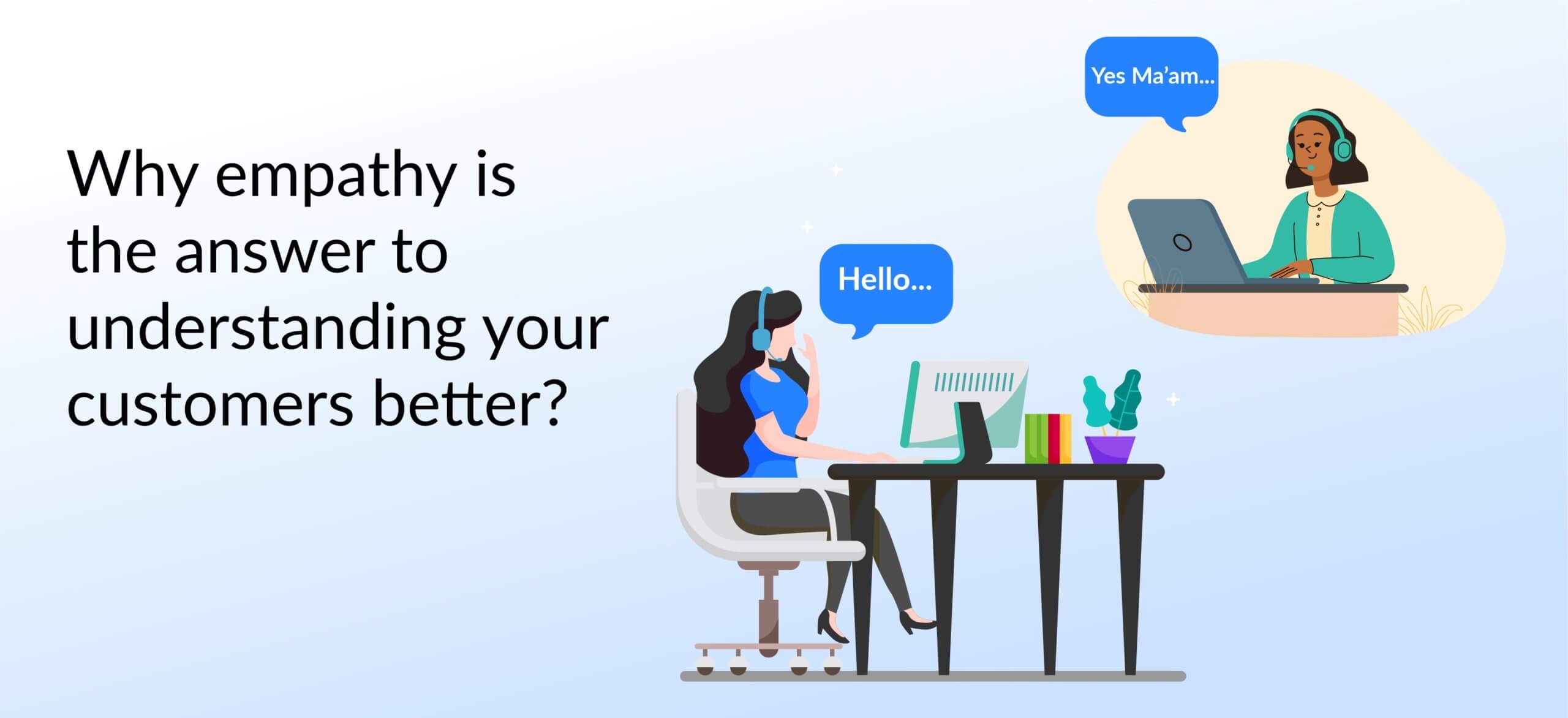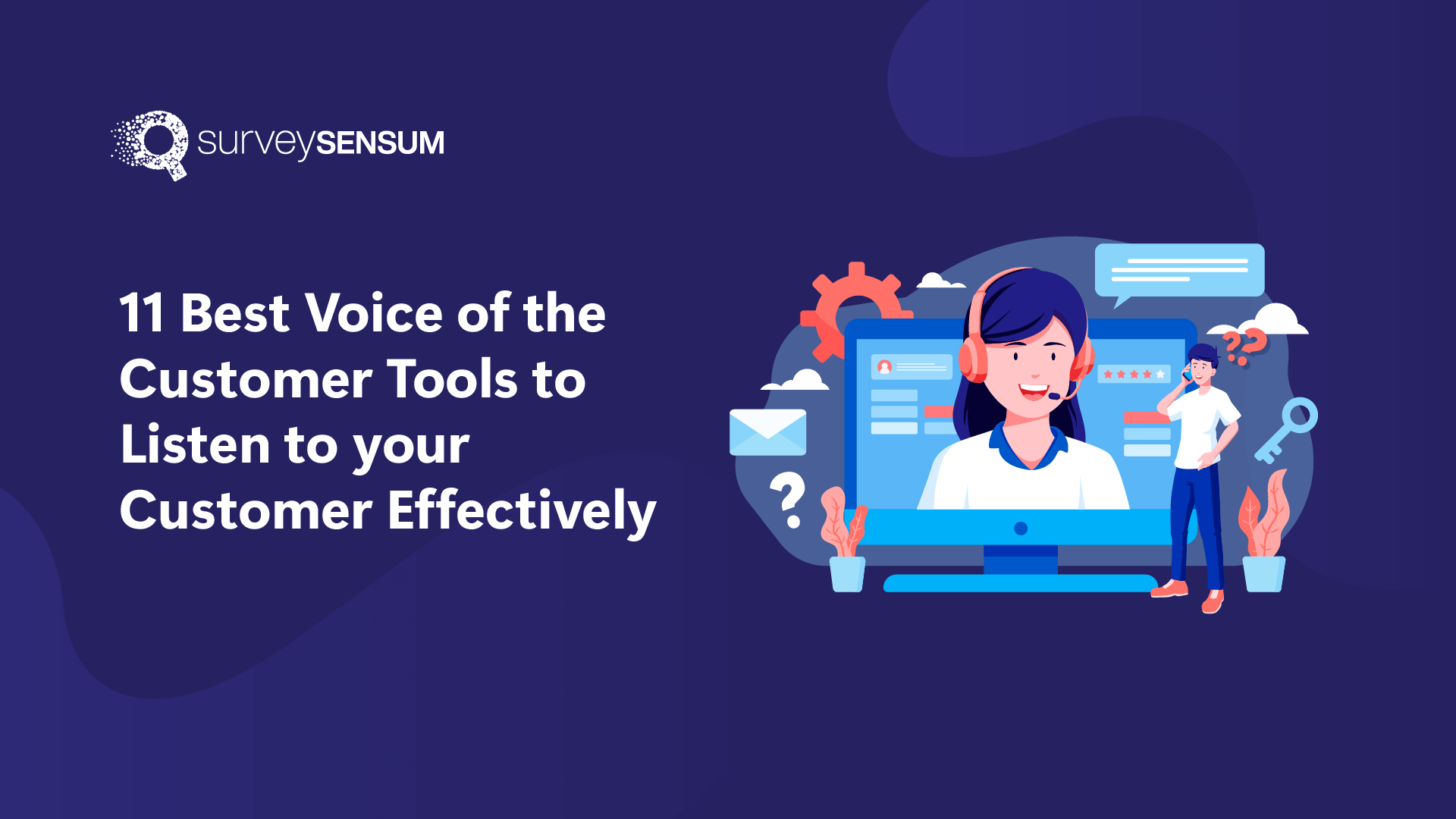
I have seen many businesses wonder, ‘How can we build better rapport with our customers?’ or ‘How can we ask them to trust us?’ All of this and much more to improve their bottom line. And then they ask themselves,
“Do we need to post more on social media?”
“Should we follow suit and do what the competition is doing?”
“Should we dive headfirst into the latest marketing trend?”
But, what if the answer is simpler than it seems?
For the last 7 years, I have seen businesses struggling. They focus on building social media channels, learning the latest marketing trends, competitors, and other things.
But, the most important question is, ‘Do they really know their customers?’
Or did they even try? That’s where empathy comes in!
Empathy is really important for a business.
Why?
Did you know that 81% of consumers said they’d only buy from the brands they trust?

Customers buy from companies they trust and connect with emotionally. If you want to be trusted, you have to be willing to go the extra mile to understand your customers better.
One of the great benefits of empathy is that it gives you insight into your customers’ point of view. You start to understand and feel their problems, their frustrations, and what really matters to them. And all this helps you come up with the solutions that can help you solve their problems and build stronger relationships with them.
When you empathize with your customers, it opens up your brand to opportunities you might not have considered before.
How much does empathy impact any business?
From the launch of product development to the customer experience, everything a business does should be done strategically with the customer in mind. And, the only way to know what your customer wants is to tap into their feelings with your empathy skills.
Yes, it can be sometimes difficult to connect with prospective customers on an emotional level. But when you put down the efforts, you’ll see that you can achieve more success when your customers’ emotions are directly infused into your brand story to paint a clearer, emotional picture. It makes your brand more relatable and trustworthy.
Even though having a strong, empathetic brand story is important, it isn’t everything. What about the people who are at the heart of your business?
Why is it important for CX Professionals to be empathetic?
CX professionals must learn empathy because they are the ones in charge of making the end-customer satisfied. And, how will they know how to make an incredible customer experience if they don’t empathize with their customers?
But the question is, can empathy be taught?
While some live with the approach they are the way they are because they were “born with it”. Whether it be humor, intelligence, or even empathy, lots of individuals blame their genetics for their shortcomings.
But that’s not true. Empathy CAN be taught. Yes, It takes time and implementation. But, it can be learned with the right actions in place.
Let’s talk about how.
How can you improve your empathy skills?
The great thing about empathy is that you can build it. Many businesses only scratch the surface when trying to understand their customers. They may lean heavily on looking at quantitative data like impressions, ROI, and engagement to decipher the answer to their lag in return. But, analytics shouldn’t be the only thing your business should look at. The metrics don’t paint the picture of “why” a customer feels the way they do towards your business. It’s only when you know the WHY behind their feedback or reaction, can you understand their problems, complaints, or expectations better.
1. Know your customer problems better

The better you know your customers, the more likely they are to connect with your brand. NPS surveys are one of the best ways to identify your customers’ perception of the brand.
And yes, only the NPS question isn’t enough, the real value lies in the open-ended question that follows. Because it’s only when you analyze the open-ended feedback sample, can you identify the top customer complaints and resolve them one by one.
And doing that consistently will improve your relationship with the customers. When they’ll see that you are listening to them, you really care about what they say or feel, it will increase their trust and loyalty towards the brand.
2. Put yourself in their shoes

When we were growing up, we were always told, “How about you put yourself in their shoes”? Oh, how this has been proven to be true even outside of personal relationships!
The same goes for customer relationships as well. Many businesses lack this. But only by putting yourself in your customer’s shoes can you see better ROI and loyalty on your products or services.
So, whenever any negative feedback reaches you, reach out to your customer instantly. Don’t delay because waiting for a response can make any angry customer angrier. So, reach out and understand what is bothering them. Dig deeper and try to find the root cause of the problem. Resolve it if you can, or else transfer it to the concerned department, and don’t forget to assure the customer!
3. Speak Their Language

One problem I’ve seen time and again as a CMO is a fact that many businesses incorporate technical jargon in their marketing messaging. It’s great to use this language internally, but it can deter them from talking to you if your customers don’t understand the terminology. And if they don’t want to talk to you or are uncomfortable talking, then they don’t want to do any business with you,
So, when launching any customer feedback surveys or in any interaction, you make with them, be sure to add the sentiments you collect from your messaging. It’s always easier to get a customer response when you speak their language.
Build Connection Through Empathy
Empathy is the answer to understand your customers better!
If you want to understand your customers better, get to know them better, learn how to listen, ask open-ended questions, and put yourself in their shoes. And yes, don’t forget to speak their language.
By following these 3 empathy pointers, you will see an increase in sales, engagement, and overall customer loyalty.
If you got anything from this article, let it be this: Connecting with your customers matter.
Connecting with your customers will enable your business to forge deeper relationships and help increase your bottom line so that you can meet your revenue goals.
Ryan Gould – Vice President of Strategy and Marketing Services
 From legacy Fortune 100 institutions to inventive start-ups, Ryan brings extensive experience with a wide range of B2B clients. He skillfully architects and manages the delivery of integrated marketing programs, and believes strongly in strategy, not just tactics, that effectively aligns sales and marketing teams within organizations. Ryan is known for taking complex marketing and business challenges and developing solutions that simplify processes while driving customer outcomes and business value. He also thrives on guiding Elevation teams toward the execution of strategies that help companies succeed in new verticals while staying true to core values and brand integrity.LinkedIn: https://www.linkedin.com/in/rygould/
From legacy Fortune 100 institutions to inventive start-ups, Ryan brings extensive experience with a wide range of B2B clients. He skillfully architects and manages the delivery of integrated marketing programs, and believes strongly in strategy, not just tactics, that effectively aligns sales and marketing teams within organizations. Ryan is known for taking complex marketing and business challenges and developing solutions that simplify processes while driving customer outcomes and business value. He also thrives on guiding Elevation teams toward the execution of strategies that help companies succeed in new verticals while staying true to core values and brand integrity.LinkedIn: https://www.linkedin.com/in/rygould/Website: https://elevationb2b.com/















